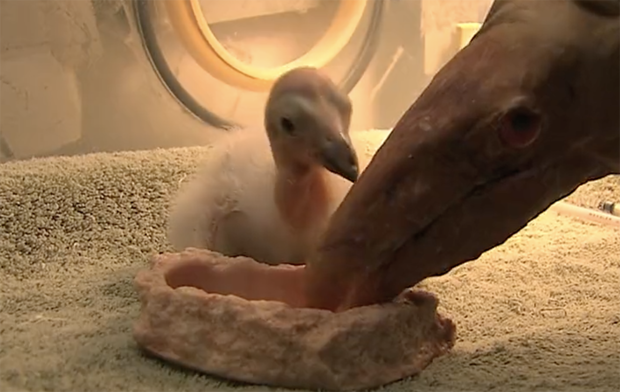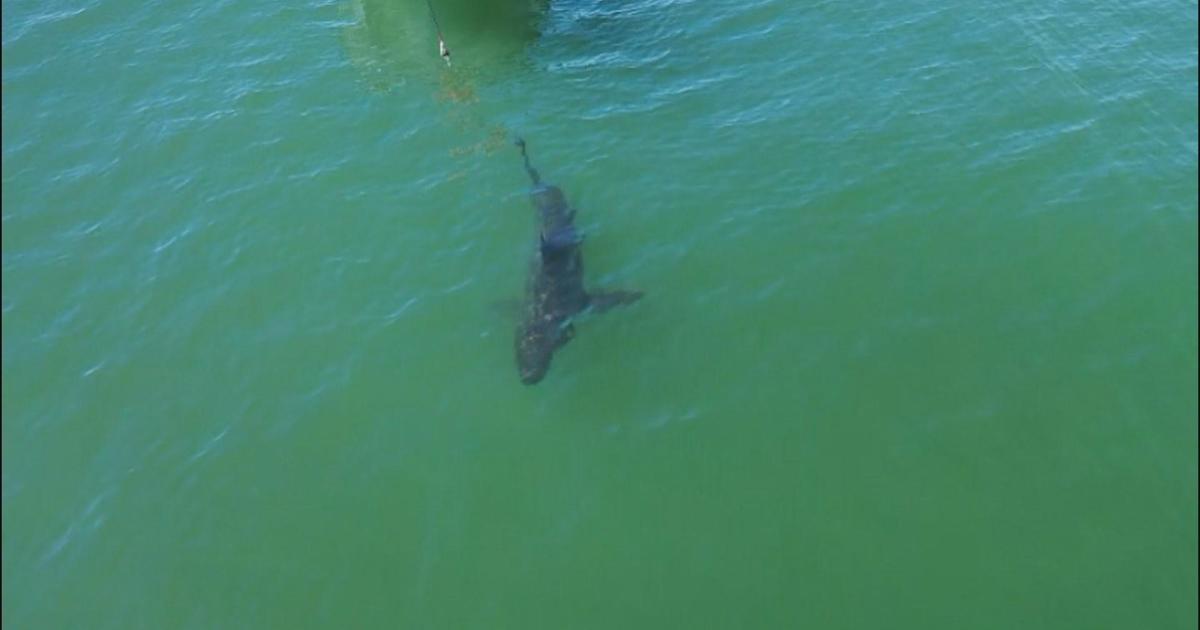San Diego Zoo Wildlife Alliance Confirms 2 California Condor Chicks Were Hatched Asexually
SAN DIEGO (CBSLA) — Scientists at the San Diego Zoo Wildlife Alliance say two California condors have hatched from unfertilized eggs, the first two instances of asexual reproduction confirmed in the species.
Two California condor chicks that were part of the 30-year breeding program at the zoo were confirmed to be genetically related to a respective female condor, or dam, that laid the egg from which it hatched, but were determined to not be genetically related to a male – both chicks are biologically fatherless, zoo officials said. The extraordinary findings were reported in the "Journal Of Heredity," the official journal of the American Genetic Association.
This is believed to be the first confirmed instance of parthenogenesis, or asexual reproduction, in the species – despite the fact that the two female mother condors were continuously housed with fertile male partners.
"This is truly an amazing discovery," Dr. Oliver Ryder, co-author of the study and director of conservation genetics at the San Diego Zoo Wildlife Alliance, said in a statement. "We were not exactly looking for evidence of parthenogenesis, it just hit us in the face."
One of the chicks passed away in 2003 at the age of 2, while another died in 2017 at the age of 8. Their hereditary data was detected through samples of blood, eggshell membranes, tissues, and feathers fathered from more than 900 condors over the 30-year program.
Zoo officials say parthenogenesis, a natural form of asexual reproduction, is relatively rare in birds and normally observed in females with no access to males. These female condors in question have both produced numerous offspring with their mates – one has had 11 chicks, while the other has been paired with a male for more than 20 years and has had 23 chicks.
Parthenogenesis is typically difficult to confirm in birds, and previously only been confirmed in domestic birds – the phenomenon has been identified in turkeys in studies conducted in 1965 and 1968; and again in finches and domestic pigeons in 1924 and 2008. However, the eggs failed to hatch in the case of finches and pigeons.
Scientists say they continue to plan future genotyping efforts in the hopes of identifying more cases of parthenogenesis.
"These findings now raise questions about whether this might occur undetected in other species," Ryder said.




